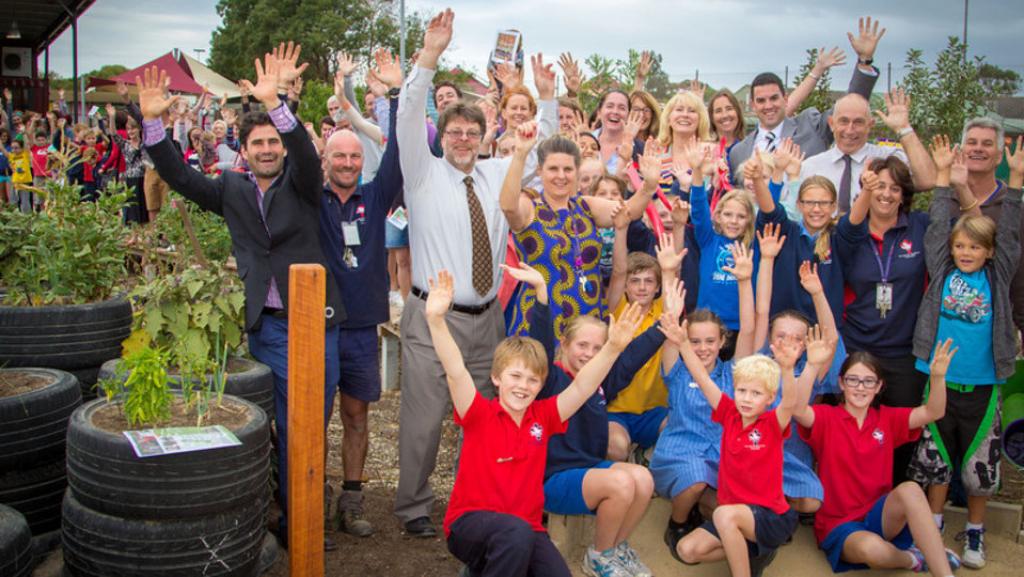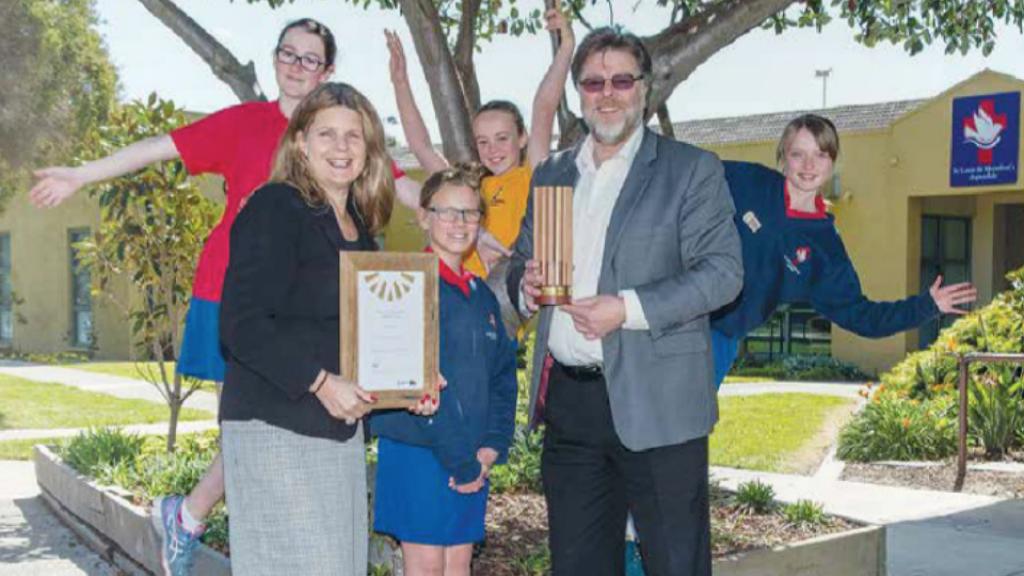Profile: Julie Wynne, Primary classroom teacher, sustainability and wellbeing coordinator, Vic
Professional career
I have been in the field of education for more than 30 years, with a few pit stops along the way. These include twelve years out running my own real estate floorplan business, waitressing and working as a medical receptionist while having four children. I returned to teaching in 1990 after 12 years, once my youngest child had started school. Wow – how things had changed! When I left we were on a curriculum schools framework – when I returned we were into Victorian VELS. I had a lot of catching up to do.
I began my teaching career at Sacred Heart Newport and have been at St Louis de Montfort’s for the last 15 years in numerous roles. I came to the school in 2001 as a classroom teacher. Since then I have taken on various jobs: year level coordinator, literacy leader, wellbeing leader and now a combination of wellbeing and sustainability leader.
During my time at St Louis I have also furthered my studies by completing a Masters of Education, Post Graduate Student Wellbeing, Certificate in Literacy Leadership and a Certificate IV in Education and Training. On reflection, this training mix is probably a strange combination for a sustainability leader, but I believe that my work in student wellbeing has made me more passionate about sustainability. Getting kids back to nature improves mental health and student outcomes – part of my wellbeing role is also about student leadership and building sustainable leaders now and in the future.
How did you get into teaching sustainability?
It is strange how ‘sliding door’ moments occur. I am no gardener and definitely do not have a green thumb. In fact the running joke at our house is that if anything comes home for me to look after it is on a suicide mission. Saying this, we have always had lots of different animals – rabbits, ducks, cats, birds, fish, dogs and chickens. We encouraged our children to use less energy and there were many times I was knocking on the bathroom doors telling them to get out of the shower as they were wasting water.
Maybe it was a throwback from when I was very young. During the drought my mum had all her six children bucketing water from our baths and washing machine onto the trees in the park behind our house.
In reality, a number of factors aligned and switched me onto sustainability:
- a passionate Principal who wanted the school to focus on sustainability
- research that showed a strong connection between wellbeing and sustainability
- working on the 2035 Kingston Council visioning panel and realising we needed long-term plans and goals to get things going
- wanting to achieve five-star sustainability in the ResourceSmart school certification
- having fantastic support from Karen Jones and her colleagues at the Kingston Council.
I am also passionate about building community in the school, and our sustainability initiatives have definitely supported in this goal.
Highlights
Through our Sustainability Learnscape we have developed a state of the art environment where students can ‘get back to nature’ – playing in the ponds, planting seedlings, collecting vegetables to cook with, petting a rabbit or a goat or getting their hands in the earth. Linking these activities across all areas of the curriculum so that more than 450 of our students take part in our Garden2Kitchen program every year embeds the experience in our teaching and learning.
Our school student environment and sustainability leaders are a credit to the school. They run peer-to-peer workshops on worm farming, composting, ponding, aquaponics and animal-care. The school has an open-door policy where we provide support for any teacher, or school, on the sustainability journey. The school also runs workshops for Victorian school gardens, Sustainability Victoria, Kingston Council, Catholic Education Office, Resource Smart Schools and Kids Teaching Kids.
Envisioning and manifesting the Steps to Sustainability conference with Karen Jones and with the support of Sustainability Victoria and Melbourne Catholic Education Office in 2015 gave me the opportunity to give back and support all the schools on their journeys.
St Louis de Montfort has been acknowledged through many awards. Highlights include:
- Active Schools Award and Finalist Community Action Leadership award in the Keep Australia Beautiful Victoria Sustainable Cities Awards (2015)
- Marine Ambassador Award (2015)
- Sustainability Victoria ResourceSmart Biodiversity Primary School of the Year (2015)
- Winner Victorian Schools Garden Regional Award (2014)
- Victorian Premier's Sustainability Education Award (2014).
I was also awarded Sustainability Victoria's ResourceSmart Primary Teacher of the Year in 2014.
Reflections
With a busy curriculum and the constant pressure to improve student outcomes, the only way for sustainable education to be taught is through integrating it across the curriculum (see our case studies via In the School and In the Community).
Making sustainability a whole-school approach where it is a normal part of everything we do starts with a review of all practices and procedures in a baseline audit. An example of this at St Louis has been our review of the school's waste procedures. We have declared ourselves a national forest, created a take-in take-out rubbish policy, and changed our bin systems and photocopy procedures.
This is a whole school approach.
Boardwalk Cheer_feature.jpg

